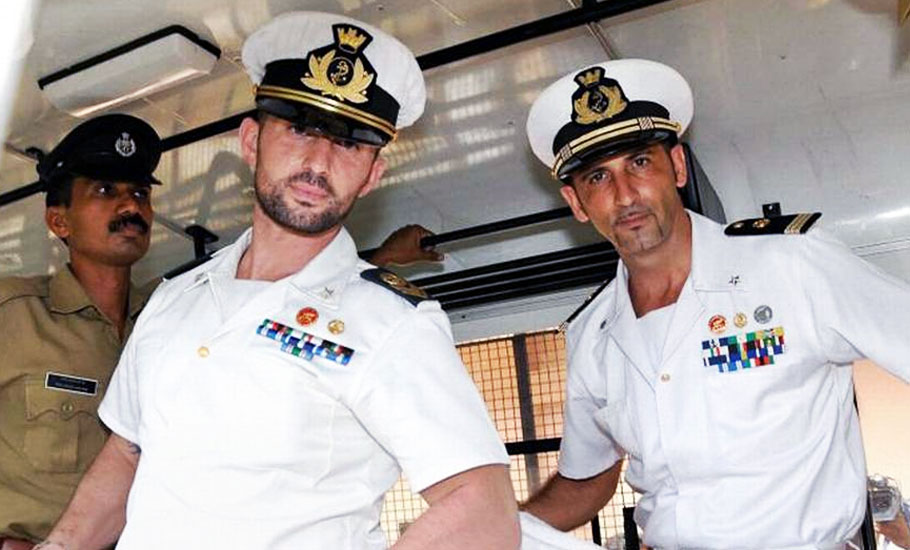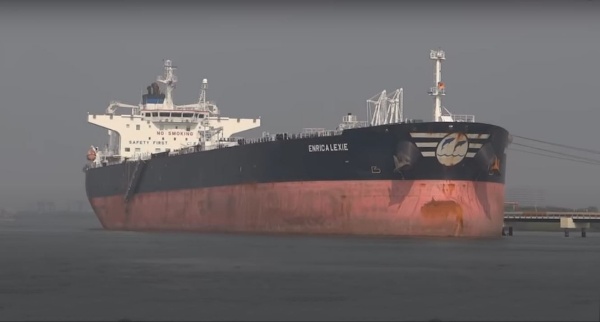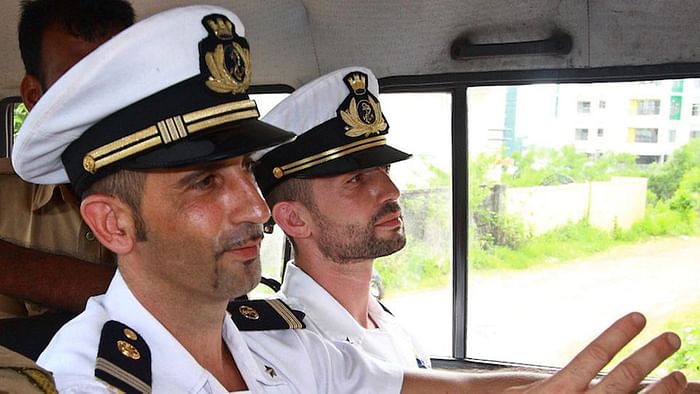
- Home
- India
- World
- Premium
- THE FEDERAL SPECIAL
- Analysis
- States
- Perspective
- Videos
- Sports
- Education
- Entertainment
- Elections
- Features
- Health
- Business
- Series
- In memoriam: Sheikh Mujibur Rahman
- Bishnoi's Men
- NEET TANGLE
- Economy Series
- Earth Day
- Kashmir’s Frozen Turbulence
- India@75
- The legend of Ramjanmabhoomi
- Liberalisation@30
- How to tame a dragon
- Celebrating biodiversity
- Farm Matters
- 50 days of solitude
- Bringing Migrants Home
- Budget 2020
- Jharkhand Votes
- The Federal Investigates
- The Federal Impact
- Vanishing Sand
- Gandhi @ 150
- Andhra Today
- Field report
- Operation Gulmarg
- Pandemic @1 Mn in India
- The Federal Year-End
- The Zero Year
- Science
- Brand studio
- Newsletter
- Elections 2024
- Events
- Home
- IndiaIndia
- World
- Analysis
- StatesStates
- PerspectivePerspective
- VideosVideos
- Sports
- Education
- Entertainment
- ElectionsElections
- Features
- Health
- BusinessBusiness
- Premium
- Loading...
Premium - Events

Italian marines case: How the UN court order leaves India at sea
The Permanent Court of Arbitration's ruling that the two Italian marines cannot be tried in India is a severe blow to the country, feel experts.

When Valentine Jelastine and Ajish Pinku set sail from Neendakara fishing harbour in Kollam on February 15, 2012, they had no idea they wouldn’t return home alive. That night, the two fishermen were killed in rifle fire by two Italian navy marines who were on board the Enrica Lexie, an Italian oil tanker, approximately 20.5 nautical miles off India’s coast. The Italian marines —...
When Valentine Jelastine and Ajish Pinku set sail from Neendakara fishing harbour in Kollam on February 15, 2012, they had no idea they wouldn’t return home alive.
That night, the two fishermen were killed in rifle fire by two Italian navy marines who were on board the Enrica Lexie, an Italian oil tanker, approximately 20.5 nautical miles off India’s coast.
The Italian marines — Salvatore Girone and Massimiliano Latorre — claimed to have mistaken the fishermen for pirates.
There were nine others along with Jelastine and Pinku on the fishing boat St Anthony. Freddy, the captain of the boat, later said that he suddenly woke up at night and saw Jelastine was bleeding from his nose and ears. Freddy realised that bullets were being shot at the boat and asked everyone to lie down. He then saw Pinku. Blood was oozing out of the right side of his chest. Freddy quickly took over the steering and raced as fast as he could and managed to escape. When he later went to take a look at Jelastine and Pinku, they both had died.
He and the others brought back the two bodies to Jelastine and Pinku’s families, setting off a wave of grief and mourning, and a long and arduous journey for justice.
Eight years later, the Permanent Court of Arbitration at Hague in Netherlands, which had taken over the case due to a diplomatic clash over rights of jurisdiction, recently ruled that India is entitled to claim compensation from Italy for the loss of human life and other material loss. The national media celebrated it as India’s victory despite the other part of the ruling which said India was precluded from exercising its jurisdiction over them, which means the marines have immunity and cannot be tried in India.
Experts in maritime law and international covenants, however, contend that this has, in fact, set a dangerous precedence, limiting the scope of India’s criminal jurisdiction over crimes happening on the high seas.
By this judgment, India has lost its criminal jurisdiction within the 200 nautical mile area that is an exclusive economic zone
“The judgment eclipses India’s powers on the high sea. By this judgment, India has lost its criminal jurisdiction within the 200 nautical mile area that is an exclusive economic zone,” says advocate VM Syam Kumar, a Kerala High Court lawyer.
That is not the only thing that makes India’s position weaker. The judgment raises serious questions on the scope and definition of Article 21, the right to life — raising the question as to whether the Permanent Court of Arbitration undermines the spirit of the fundamental rights provided by India’s Constitution.
“The Italians marines took the case to the international tribunal when a criminal investigation in India was under progress. The investigation by the National Investigation Agency (NIA) was instituted by the government followed by the Supreme Court’s decision that India has the sole authority to conduct the trial in India. How can we interpret this ruling (by the Permanent Court) as a victory?” asks advocate Unnikrishnan, counsel for the families of deceased fishermen.
How the case unfolded
Immediately after the firing, the Italian vessel proceeded about 38 nautical miles on the high seas towards Djibouti, but received a telephone message and an e-mail from the Maritime Rescue Coordination Centre, Mumbai, asking it to return to Cochin Port to assist with the inquiry into the incident.
The two marines were brought to the shore and were arrested following an FIR by the Kerala Police. The two marines were charged with murder and remanded to judicial custody.
While in custody, the duo filed a writ petition in the Kerala High Court challenging the jurisdiction of the state government to commence criminal proceedings against them, and so, to quash the FIR. They argued that the entire procedures right from the lodging of the FIR and the arrest were contrary to law.
While the writ petition was pending, the Italian government commenced a criminal investigation into the matter. Besides, the Kerala Police also submitted the chargesheet against the two marines holding them guilty under various sections of Indian Penal Code (IPC), including Section 302 (murder) and also under the Suppression of Unlawful Acts against Safety of Maritime Navigation and Fixed Platforms on Continental Shelf Act, 2002 (SUA Act), during this time.

In May 2012, the single bench of the Kerala High Court dismissed their writ petition and held that the Indian Penal Code had been extended to the Exclusive Economic Zone under a 1981 notification and, thus, the territorial jurisdiction of the state of Kerala was not limited to 12 nautical miles only. It was also held that Kerala has jurisdiction up to 200 nautical miles from the Indian coast, falling within the Exclusive Economic Zone of India as per the provisions of the SUA Act.
In the appeal, the Supreme Court had held that the state of Kerala had no jurisdiction to initiate criminal procedures against the Italian marines, but the Union of India (Central government) has.
The SC on January 18, 2013, held that under Article 100 of the United Nations Convention on the Law of the Sea, India has jurisdiction to proceed criminal investigation and trial in such a case. It also directed to set up a special court to try the case. Following this, the NIA took over the case and started a fresh investigation.
Aggrieved by this decision, Italy approached the Permanent Court of Arbitration at Hague in Netherlands under the United Nations Convention on the Law of the Sea (UNCLOS), according to which proceedings were instituted in June 2015. India and Italy filed affidavit and counter-affidavit and the process of arbitration and hearing of both the sides were conducted. The hearing addressed the jurisdiction of the Arbitral Tribunal as well as the merits of Italy’s claims and India’s counter-claims.
The court finally gave the judgment in May 2020 (which was released to the public only two months later) that India is entitled to claim compensation but has no jurisdiction for criminal investigation and trial against the two marines. It was held that the authority of criminal proceedings goes to Italy as the marines have sovereign immunity upon the acts they did during the course of work.
The media interpretation of India’s victory was based on a few aspects of the judgment that were in favour of India. The Permanent Court of Arbitration has held that Italy has breached Articles 80, 87 and 90 of the UNCLOS by which India is entitled to seek compensation for loss of life, physical harm and material damage to property.

The tribunal held that Enrica Lexie interfered with the navigation of St Antony and violated India’s right to sail vessels carrying its flag in the high seas.
India at a loss?
Compared to the gains, the losses suffered are heavier, say maritime experts. The decision that the marines are entitled to immunity and India has no criminal jurisdiction over the matter is a severe blow.
“By this decision, all actions taken by the Indian law enforcement agencies upon the accused got nullified and are also rendered as illegal and unsustainable,” says Syam Kumar.
“The singular effect of such a finding will be that if a similar incident were to happen in future upon Indian coastal waters, the law enforcement agencies will find it either difficult or impossible to intervene and protect the interests of the country, especially the fishermen who often go to the exclusive zones for fishing.”
From a long-term perspective, India’s sovereign rights upon the exclusive economic zone (EEZ) are compromised by this award. Article 56 of UNCLOS stipulates that the coastal country has right over the exclusive economic zone, and thus, there were absolutely no legal problems for fishermen to do maritime activity in this zone.
“This award unsettles this position. How can our coastal force ensure security to the fishermen if India’s sovereign authority within the exclusive economic zone is challenged?” asks Unnikrishnan, who is now planning to file a public interest litigation in the Supreme Court to resolve the legal tangles.
The core question is how could the two marines claim sovereign immunity. Latorre and Girone of the San Marco regiment of the Italian Navy were members of the Military Protection Detachment deployed on the commercial vessel. In their defence, they claimed to have taken action to protect the vessel against a pirate attack. Legal experts in India who are not satisfied with the recent ruling argue that the Italian marines were on duty to protect a private vessel and were not on sovereign duty for the country.
According to the Italian rule of law, the Ministry of Defence can enter into contracts with private ship owners in order to get the service of the Military Protection Detachment to guard themselves from pirate attacks.
How can our coastal force ensure security to the fishermen if India’s sovereign authority within the exclusive economic zone is challenged?
The fishermen’s organisations in Kerala too are unhappy with the ruling by the Permanent Court of Arbitration. “How can the loss of life be compensated? Right from the beginning, we had only one demand that the marines should be tried for the crime they committed and adequate punishment should be awarded,” says T Peter, general secretary of National Fishworkers’ Forum.
Peter blames both the state and central governments for leaving loopholes in the course of the case that contributed to the present ruling by the international tribunal.
“Most of the arguments raised by India were approved by the tribunal, but India’s jurisdiction to try them was not allowed. This is very unfortunate” says VD Majeendran, general secretary of Kerala Swathanthra Malsya Thozhilali Federation, a body of fishworkers.
Foreign vessels having conflicts in the sea route of fishing boats happen quite often. This award raises serious security concerns, says Majeendran.
The organisations demand that the state and central governments should take necessary action to ensure the safety and security of the fishermen.
The families seem to be in a mood to concede. “We have always supported the Indian government and accepted the decision taken by it. Now, we understand that there is no way these marines can be tried in India,” Fr Rajesh Martine, a cousin of Jelastine tells The Federal.
Visibly distraught, Martine knows once a crime becomes a matter of bilateral ties, individuals have little option but to abide by the decisions of the government, however aggrieved they may be.
